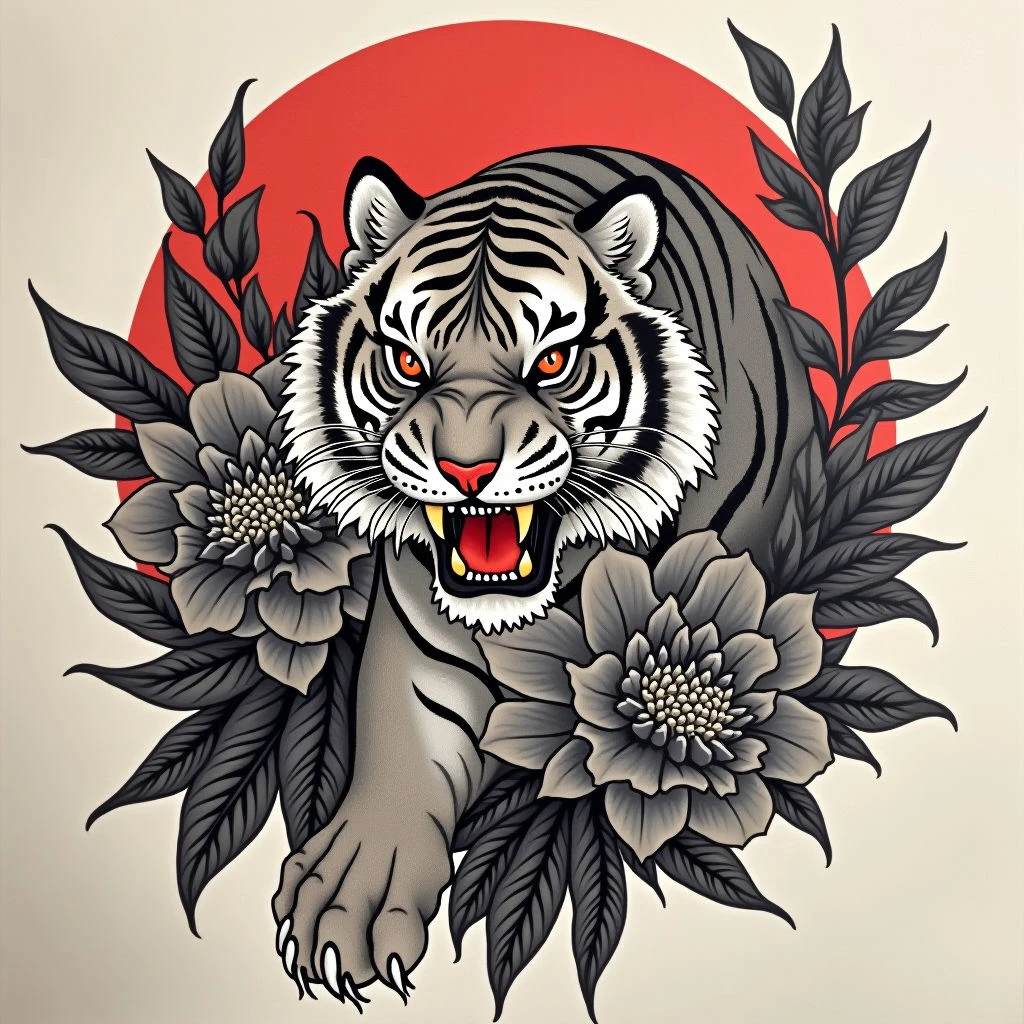Korean Tattoo Designs: A Connection to Ancient Traditions and Nature
Unlike some cultures that have restricted tattooing historically, Korea boasts a rich tapestry of symbolic imagery used for centuries, often interwoven with shamanistic beliefs and aristocratic status.
Understanding the Symbols
- Tigers (호랑이 - Horangi): Represent courage, protection, and good fortune. They are powerful guardians in Korean mythology and frequently feature in traditional artwork.
- Dragons (용 - Yong): Symbolize wisdom, strength, and prosperity. Dragons often control water and weather, embodying both power and benevolence.
- Phoenixes (봉황 - Bonghwang): Represent rebirth, grace, and virtue. The phoenix is a symbol of royalty and divine favor.
- Floral Patterns: Korean floral designs are highly symbolic. Peonies signify wealth and honor; lotuses represent purity and enlightenment; chrysanthemums symbolize longevity. Each flower carries layers of meaning.
- Korean Script (한글 - Hangeul): Incorporating names, dates, or meaningful phrases in Hangeul is a popular choice for personalized tattoos showcasing Korean heritage.
Beyond Aesthetics
A Korean tattoo isn’t just about beautiful artwork; it’s an expression of cultural pride and personal connection. Researching the meaning behind your chosen symbols ensures you honor their significance.
Consider consulting with an artist experienced in Korean tattooing to ensure authenticity and respect for tradition. They can help you navigate nuances and avoid unintentional misinterpretations.
Choosing Your Artist
Finding an artist who understands Korean culture and traditional techniques is crucial. Look for portfolios showcasing authentic designs and a deep appreciation for the symbolism involved.


